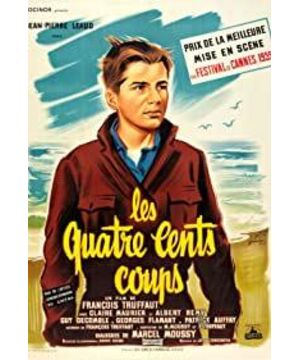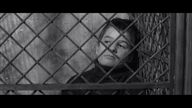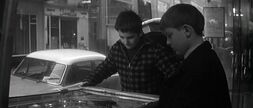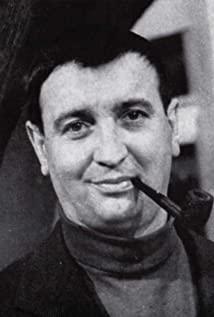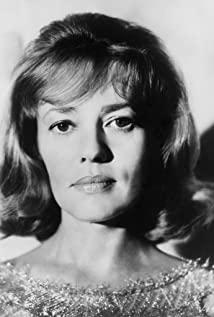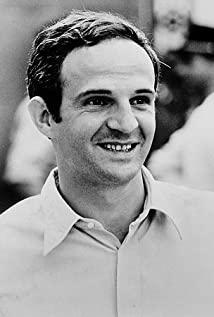/ Organized by Fan Daming /
Time: January 7, 2012 (Saturday) 11:10-11: 40am Venue: Henglu
Art Museum Lecture Hall, No. 202, Nanshan Road, Hangzhou
( The scene after the viewing of Truffaut's work "Four Hundred Blows" at Henglu Art Cinema)
Participants: (Preface) Fan Daming, Li Haiyan, He Ji, Yang Yuehui, Chen Xingsheng, Niu Yuzhu, Wu Wei
(Viewers: Ding Yunzhen, Ji Boqing, Yu Han, Gu Jun, Yu Baiwen, Zhu Xilin, Liu Yifa, Wang Shujin, etc.)
Moderator: Fan Daming
Record: Wu Wei
The
last two long shots of the film and their anti-"quality film" characteristics Strike" is a semi-autobiographical film by the director himself. In terms of genre, it should be said to be a growth film. It basically stands in the position of the juvenile protagonist and develops the story from the perspective of rebellion and struggle against school and family. This child named Antoine is actually an illegitimate child, brought by her mother before marriage. His father is not his biological father. Whether at school or at home, he does not get along well with his teachers and parents. In the end, Antoine was arrested for stealing. And entered the school. The most famous of the film is the last two long shots, both of which are shot from the right side with the characters moving in parallel. One is Antoine running out of the bridge after escaping the pursuit of the young teachers, the other one. It's a long shot of running to the sea later. These two long shots have their symbolic meaning, representing that the protagonist finally broke free from the shackles of the secular, social and even legal, and moved towards the freedom of body and mind...
Li Haiyan: Who is the music producer of this film? The background music of each shot is very good. Is this a film from the 1950s?
Fan Daming: This is a film from 1959, more than 50 years ago. We can see many scenes in Paris at that time from the film. French New Wave films emerged in the mid-1950s. A group of former film critics (with Cahiers du cinéma as a medium) turned to directors and practiced filmmaking, thus forming films with obvious new ideas—they It has the colors of being anti-tradition, anti-system (referring to the way of filming), anti-social, anti-family, etc. It adopts low-cost, out-of-studio real shooting methods, so most of them are portable photography. "Four Hundred Strikes" also embodies the anti-"quality film" characteristics of the New Wave documentary film.
The problems reflected in the film still exist, and it has a very warning effect.
Li Haiyan: The educational problems reflected in this film are somewhat similar to the current Indian film "Three Silly Troubles in Bollywood". I have seen the introduction of "Four Hundred Strikes" on the Internet before, and it is good to watch it today. Unlike some domestic films with political tendencies, the plot, music configuration, etc. are not exposed. It has been a long time since the film was filmed, but the problems it reflects still exist in today’s society, and even more than that, so it is still very warning, and it is very emotional to watch.
He Ji: Has this film ever been released in China?
Fan Daming: It seems that it has not been introduced. But anyone who knows film history knows this film, and it must be shown in film schools. Truffaut's later film "The Last Metro" was translated and released in China.
The title of
"Four Hundred Strikes" Yang Yuehui: What does the title of "Four Hundred Strikes" mean?
Fan Daming: Some of them are translated as "Hu Zuo Weiwei" according to the free translation, and some are interpreted as educating children to be unqualified. Didn't I talk about "playing three times a day and still going to Peking University" last time?
Li Haiyan: Is "Four Hundred Strikes" a free translation?
Fan Daming: No, it is the literal translation of "Four Hundred Strikes", which is completely translated according to the original title.
The "new wave" is to pick out some problems in society and make everyone think again
Yang Yuehui: This "new wave" is to pick out some of the faults in the society. The shooting method of this type of film is to pick out the faults first, and then let everyone think about it. This film also talks about the problem of children's education. It seems that the problems he committed are not big, but the education of young people is a problem involved in every household, from children to teachers and parents. Also, I noticed that the schools there are coeducational and the classes are all boys. Therefore, there are problems such as reading and viewing pictures of women's bodies in the classroom.
Fan Daming: But the issue of sex can not be said to be the main problem. This film should be about primary school students, or the age of 13 or 14 years old when they graduate from primary school and connect with junior high school.
Chen Xingsheng: I'm still talking about this film. As Li Haiyan said just now, this problem is a real problem, and I also agree that it is of a global nature. Although the Indian film "Three Silly Troubles in Bollywood" reflects different age levels, it is also a social education problem - school education, social education, and parental family education. This film was filmed fifty-three years ago, and I have a different view of this director than everyone else—his film expression technique is relatively simple, and there is still a big gap with the current filming technique. But the questions he raised still have practical significance. In the last shot of running to the sea, everyone can have their own understanding. My understanding is that he wants to be free, he wants to be open-minded, and he wants to see the sea.
The director just reflected his original ecological state when he was in school,
Fan Daming: Let's ask Xiao Niu to talk about it.
Niu Yuzhu: This film is a French New Wave film, as Mr. Fan said just now. These directors are all writers and directors who have transitioned from film critics to directors. It doesn't matter where the actors go, it's very arbitrary. The picture, light and shadow of the film, including the use of the lens, are given the greatest degree of freedom. Bazin and Rohmer are New Wave founders and sponsors of New Wave film directors. Truffaut himself had the habit of petty theft since he was a child, and he didn't say anything big and evil, but he kept stealing chickens and dogs, and he didn't think his petty theft was so sinful. In fact, the film did not have any particular distaste for the social system at that time. The director just reflected his original state when he was in school at that time. His family environment created his character. It is said that he also stole precious watches from the Bazin family. According to film history, Bazin and Truffaut were in love with father and son, and Rohmer was also in love with the directors of the New Wave. In the end, only Bazin and Rohmer did not turn against Truffaut.
Documentary, Long-Take and Montage Editing
Fan Daming: Technically speaking, the main feature of New Wave is documentary, long-shot. Different from the so-called "quality film" advocated by the mainstream in France at that time, it is very simple. It is also different from Italian neorealist films, which mainly reflect the life of ordinary people at the bottom after World War II. New wave movies have a strong personality. These directors were originally outside the film industry, or amateurs, but they were especially fond of movies. Most of them became independent producers, which is a breakthrough in traditional production methods. . There are two major schools in the history of film - the montage school that emphasizes the segmentation, segmentation, and editing of shots to become relatively short shots, and the long-shot school that emphasizes the documentary style. The former is represented by Eisenstein of the Soviet Union (including theory and practice), and the latter is Bazin in France and Kracauer in Germany, mainly theoretical representatives.
Wu Wei: Was the last shot taken by the photographer with a hand-held camera, or was it shot by laying rails like many films today?
Fan Daming: It is also possible that the portable camera moves in parallel to follow the shooting.
Niu Yuzhu: One of the characteristics of directors like Truffaut is that they are all writers and directors, and they create everything by themselves. Of course, there may also be a team to do some work for them in terms of lines. Their funds are particularly tight, and they should use their mobile phones. Photography is the main focus. During the New Wave period, the Polish school has cultivated a large number of excellent photographers. The photography of these portable photographers is really stable, and you can't tell that they were shot with a portable camera when they shake the lens. Hollywood used to be 6 to 8 seconds long for a shot, with a lot of editing. The new wave's long-lens shooting method also influenced the later Hollywood shooting methods, and later Hollywood also used long-lens.
He Ji: You are right. 68 cameras were used for the opening ceremony of the Olympic Games, but the audience was confused. It changed every 5 seconds, and it was cut into pieces. Everyone was inexplicable. To be savored.
Niu Yuzhu: Long shots are also a test of the level of directors and actors.
Fan Daming: A film is about two hours long, no matter how long the footage is, editing is always necessary. The advantage of montage editing is simplicity and refinement, which can save film and time so that the film contains more connotation capacity. But the way new wave films are shot determines that they can be expressed with more long takes.
Completed at 23:40 on February 2, 2012
View more about The 400 Blows reviews


